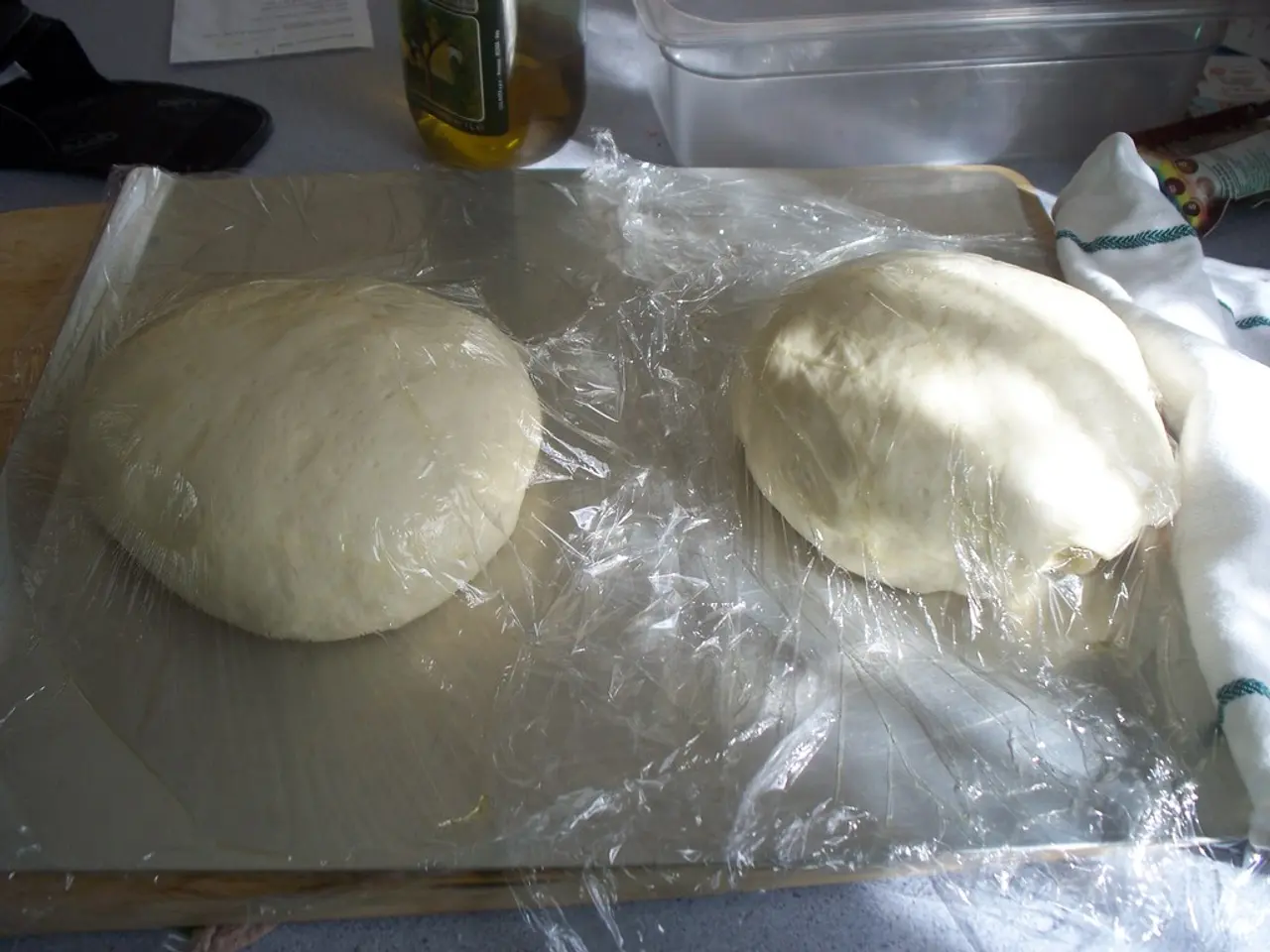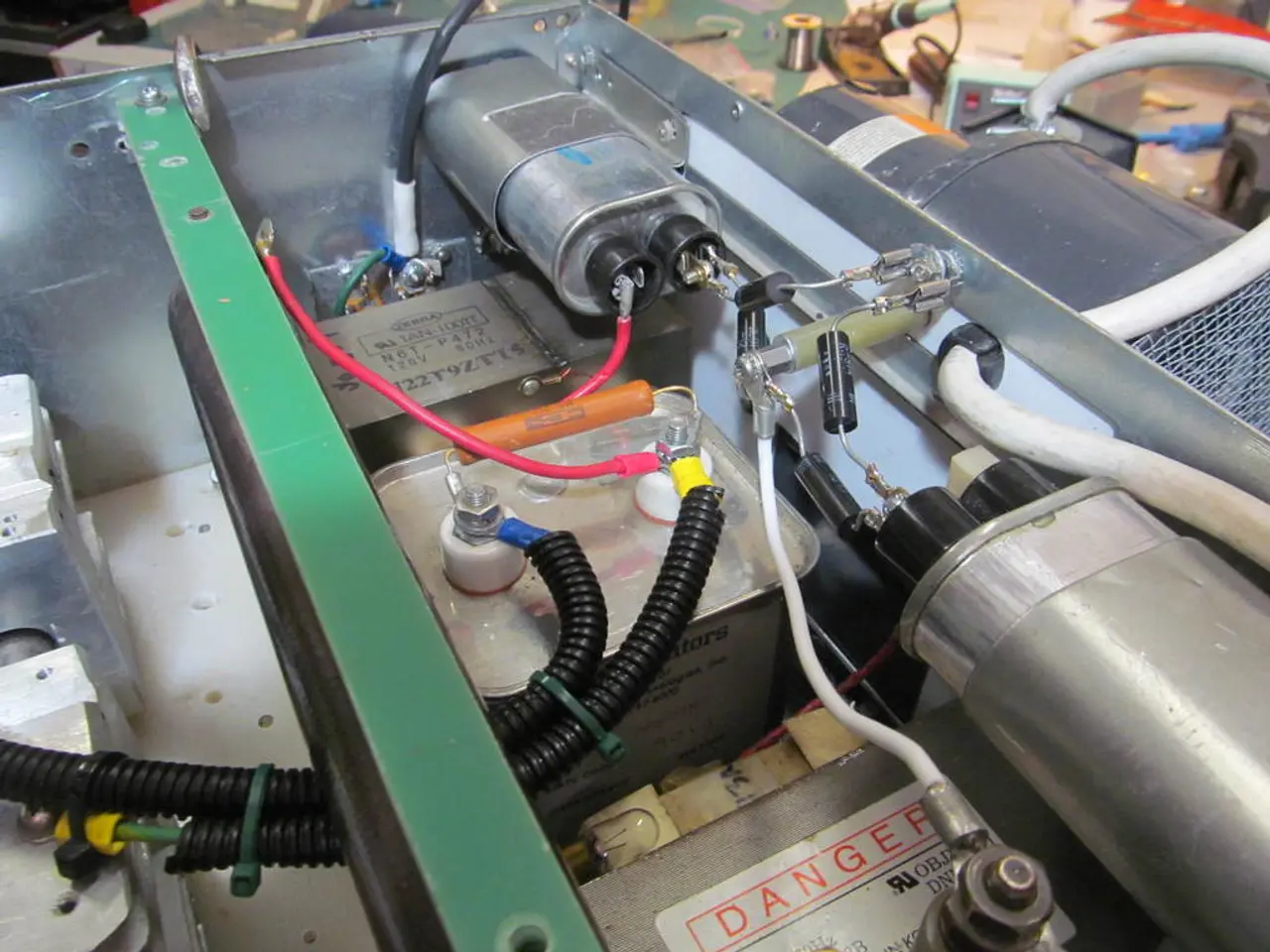Groundbreaking Biodegradable Plastic Fabricated by Microorganisms Exhibits Transparency, Flexibility, and Increased Strength Compared to Traditional Oil-Based Plastics.
In a groundbreaking development, scientists at the University of Houston have engineered a new material that promises to revolutionise the world of plastics. This innovative substance, known as engineered bacterial cellulose (EBC), surpasses traditional plastics in various aspects, including mechanical performance, environmental sustainability, and production scalability.
EBC is biologically produced by bacteria, such as Novacetimonas hansenii and Gluconacetobacter, in a dynamic biosynthesis process within a rotating bioreactor. This technique aligns the secreted cellulose fibers in real-time, resulting in organized, high-strength sheets. The production process is described as a simple, single-step, and scalable "bottom-up" approach, making it suitable for large-scale manufacturing.
In terms of strength and durability, EBC sheets reach tensile strengths up to 436 megapascals (MPa), rivalling some metals and glasses, while remaining flexible and foldable. This is significantly stronger than most conventional plastics, which typically have tensile strengths in the 20–80 MPa range depending on the type.
The material's flexibility and transparency are also noteworthy. EBC is highly flexible, foldable, and optically transparent—qualities essential for packaging, consumer goods, and medical applications. Unlike many biopolymers, EBC offers these qualities without the need for additives.
One of the most significant advantages of EBC is its biodegradability. It is fully biodegradable, breaking down naturally without leaving harmful microplastics or toxic chemicals behind. In contrast, most traditional plastics degrade slowly, releasing persistent microplastics and potentially harmful additives like BPA and phthalates.
The potential applications for EBC are vast. It can be used in packaging, medical, and electronic applications, offering a sustainable alternative to conventional plastics. For instance, it can be used to create disposable and durable wraps, bottles, and containers that do not persist in the environment. In the medical field, it can be used to create biocompatible wound dressings, sutures, and drug delivery systems.
The team, led by Maksud Rahman, an assistant professor at the University of Houston, has published their findings in Nature Communications. They have also demonstrated the potential for this material to be adapted to work in resource-limited settings or integrated into circular manufacturing systems.
In conclusion, the University of Houston’s engineered bacterial cellulose represents a promising candidate to replace conventional plastics in packaging, medical, and electronic applications. Its combination of strength, flexibility, transparency, and biodegradability makes it a significant advance over traditional plastics, helping to address global plastic pollution and sustainability challenges. The vision is that the plastic bottle of tomorrow might be produced from a tank of spinning bacteria rather than an oil refinery or recycling plant.
- This engineered bacterial cellulose (EBC), a groundbreaking material, is produced by bacteria in a dynamic biosynthesis process, exemplifying a significant advancement in the field of environmental-science and technology.
- The unique properties of EBC, such as its strength, flexibility, transparency, and biodegradability, position it as a realistic option for replacing traditional plastics in various fields, including medicine, tech, and environmental-science.
- In contrast to traditional plastics, which are known for their slow degradation and harmful microplastics, EBC degrades naturally without leaving behind toxic substances, making it a more environmentally friendly choice.
- The potential applications for EBC are vast, extending beyond packaging to medical and electronic fields, offering a sustainable solution in the pursuit of addressing global plastic pollution and sustainability challenges.




